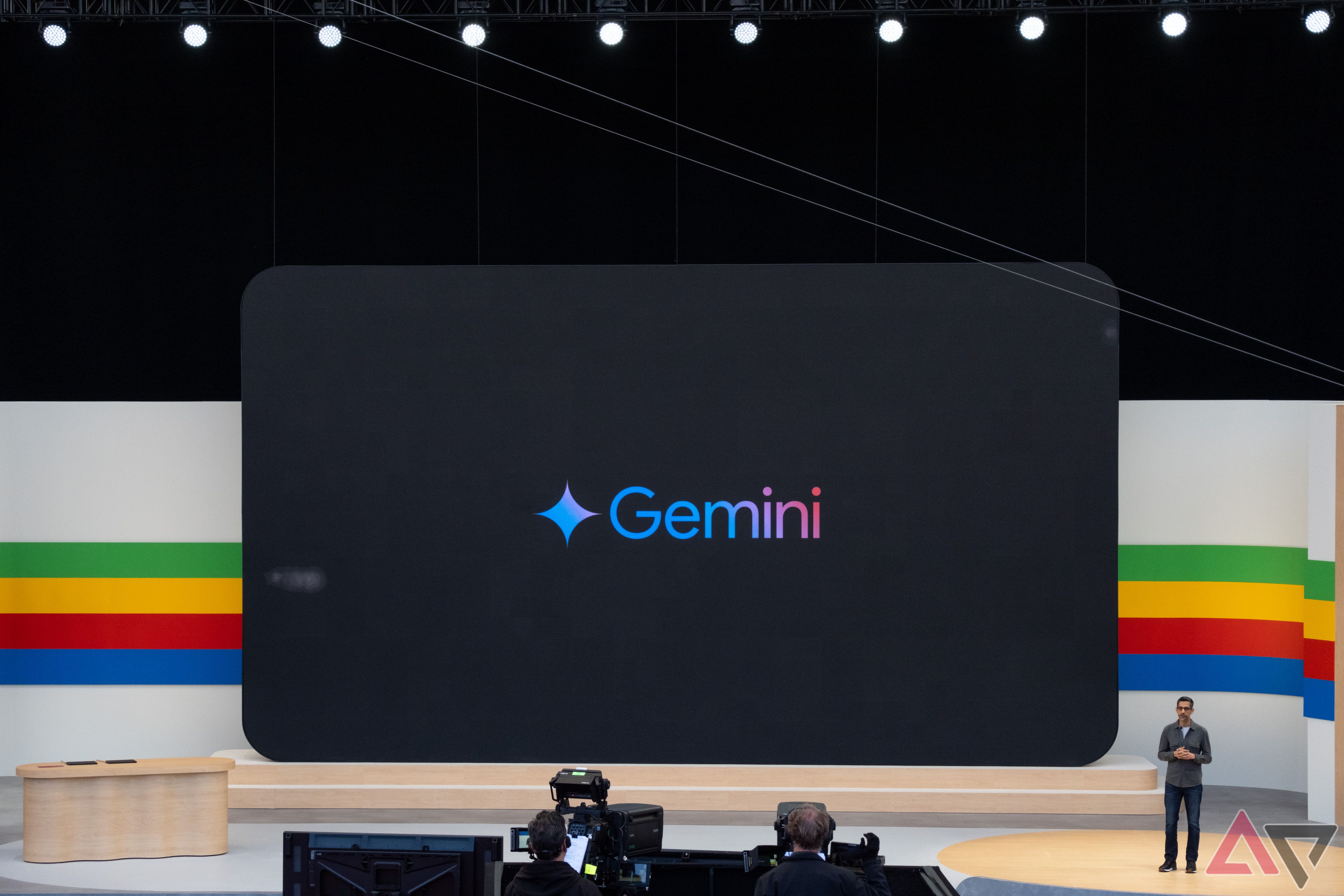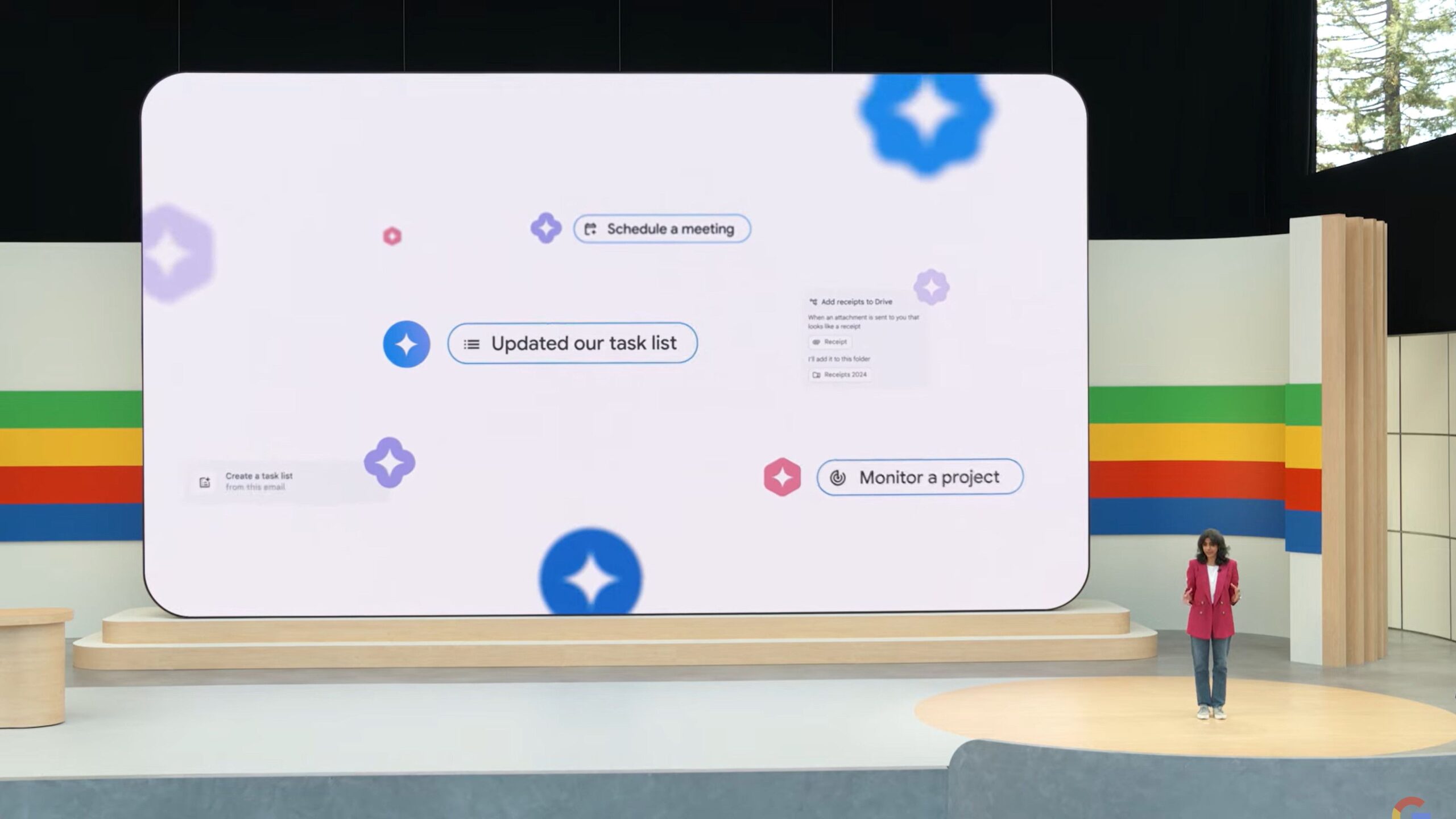Is AI here to take our jobs or boost productivity to new heights? It’s hard to tell, but the picture painted by Google’s AI Teammate seems to be somewhere in between. Google presented its vision for an AI Teammate during Google I/O 2024, its annual developer conference. It isn’t a Gemini replacement. Instead, it’s an additional chatbot that oversees projects, analyzes data, and identifies trends across the workspace.
AI Teammate isn’t a finalized product. We saw a prototype form of team-wide AI assistant integration in a Google Workspace environment. Not all is clear about AI Teammate, but here’s what we know and expect.
How will Google AI Teammate work?
And what’s the point when we have Gemini?
Google AI Teammate has not been released as of November 2024. Features and UX elements will likely change when Google rolls out AI Teammate in the future.
Chances are you have a Google account. That gives you access to Gmail, Google Drive, Google Docs, and Google Photos, among other services. It’s free of charge as long as you’re okay with 15GB of cloud storage. Google Workspace is all that and more in a paid package optimized for companies and businesses. That’s the type of account you’ll need to see AI Teammate integration.
While powered by Gemini, AI Teammate is not a substitute chatbot. The Google I/O demo presented it as a virtual coworker with its own account and access to company files, projects, and conversations. It also stressed the possibilities for customization, which go beyond giving it a cutesy name. Unlike Gemini, the business could tell AI Teammate what to do within the organization. The example set up in Google’s keynote laid out the following instructions:
- Monitor and track projects
- Organize information and provide context
- Analyze data and identify trends
- Facilitate team collaboration
These sound a lot like the duties of a supervisor or a manager, and having AI as one can be creepy and controversial. However, the practical applications Google showed on stage revolved around facilitating the work process, not replacing someone’s boss. Think summarizing conversations or offloading mundane tasks, which AI can do in minutes, but a human requires hours to complete.
Here’s the part in the Google I/O keynote where the details were previewed:
The AI Teammate demonstration provided updates on project milestones when requested. It created a document of a requested summary and provided the source of the answer to the question. It also came up with suggestions along the way. Since this happened in the same chatroom, every team member was on the same page. However, Google’s AI never gave specific instructions or delegated assignments and was never shown intervening. We don’t know if configuring it to do so is possible, but it appears Google wants to let humans handle these tasks.
What exactly are AI Agents?
Source: Google
Google described AI Teammate as an “agentive experience.” Earlier during the I/O keynote, Google CEO Sundar Pichai described AI agents as “intelligent systems that show reasoning, planning, and memory. Are able to ‘think’ multiple steps ahead, work across software and systems, all to get something done on your behalf. And most importantly, under your supervision.”
As Pichai said, AI agents are in the early days but can potentially liberate us from tedious tasks. Google presented two examples at I/O: organizing a product return and removing the friction from moving to another city. In a virtual workspace, plenty of work types could use help from an AI agent, for example, to summarize data and produce reports.
That last bit in Google’s definition of AI agents could be critical if a feature like AI Teammate is to gain traction. Even with cutting-edge AI tools, people would remain in control and have the final word. I doubt many employees would be thrilled to have AI in command, making decisions and evaluating performance. Critically, with a human making the calls, they’re also the bearer of responsibility for the consequences.
When is Google AI Teammate coming?
A firm release date is not in sight
Source: Google
There isn’t an official release date for AI Teammate, and nothing indicates it’s coming soon. The closest thing we have is a hint by Aparna Pappu, VP and GM of Google Workspace. She presented AI Teammate as part of the company’s vision for 2025 and beyond. “We have a lot of work to figure out how to bring these agentive experiences like virtual teammates into Workspace,” Pappu added.
AI Teammate is nowhere near finished, judging by the brief overview at I/O and how what we saw was referred to as a prototype. The feature might differ in its final form if it is ever released.
Is Google AI Teammate here to take our jobs?
Isn’t that the million-dollar question? There’s a history of technology replacing human labor. That’s why people no longer operate elevators and telephone exchanges or knock on windows to wake others up before the invention of alarm clocks. In hindsight, automating these and other jobs improved our lives, even though some people had to find employment elsewhere.
The integration of AI into digital jobs has begun with powerful instruments like ChatGPT and Google Gemini. The development of assistants like AI Teammate was only a matter of time, and it’s understandable how the rapid pace of AI progress may be concerning. AI isn’t perfect, but it doesn’t have to be. If it is better than a human, it will likely replace one.

Related
5 new Gemini AI features that could change your life
Now all Google has to do is actually deliver
AI may be the future, but humans make it work
AI Teammate is shaping up as a tool, and tools require people to operate. More importantly, people are needed to make decisions and be responsible for the outcomes, good or bad. If AI Teammate’s ultimate strength is to do my boring, repetitive tasks while I take care of the fun stuff, it’s welcome in my virtual office. If it ends up replacing anyone, including myself, then perhaps their job was truly due for automation.

